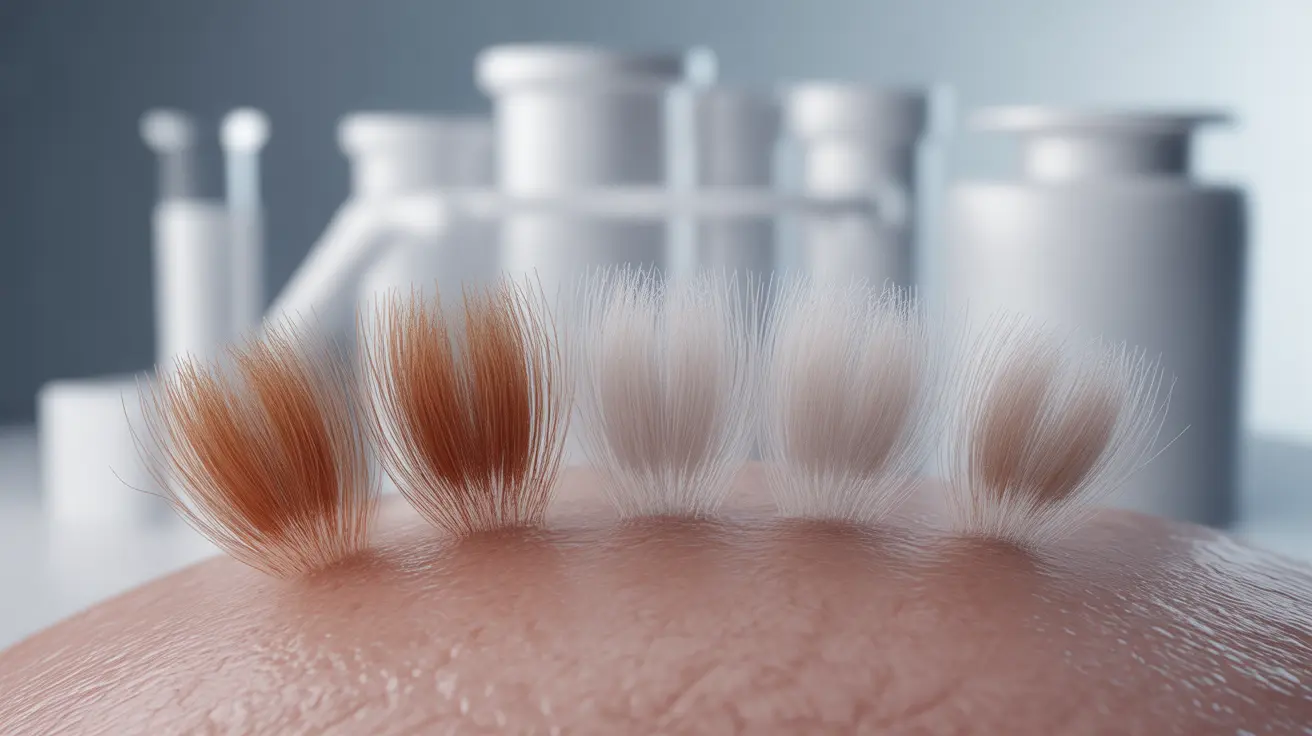The appearance of white pubic hair can be a source of concern for many individuals. While it's often associated with the natural aging process, there are several other factors that can cause pubic hair to turn white. Understanding these causes and knowing when to seek medical attention is important for maintaining your overall health and peace of mind.
In this comprehensive guide, we'll explore the various reasons behind white pubic hair, discuss when it might signal an underlying health condition, and provide information about treatment options when necessary.
Natural Aging and White Pubic Hair
Just like the hair on your head, pubic hair naturally begins to lose its pigmentation as you age. This process occurs when melanin production decreases in the hair follicles, leading to white or gray hair. This transformation typically starts happening between ages 40-50, though it can occur earlier or later depending on genetic factors.
Medical Conditions and Vitamin Deficiencies
Vitamin B12 Deficiency
A lack of vitamin B12 can contribute to premature graying of hair, including pubic hair. Common symptoms of B12 deficiency include:
- Fatigue and weakness
- Difficulty concentrating
- Numbness or tingling in hands and feet
- Memory problems
- Mood changes
Autoimmune Conditions
Several autoimmune conditions can affect hair pigmentation, including:
- Vitiligo: Causes loss of skin pigmentation and can affect hair color
- Alopecia areata: Can cause hair to turn white before falling out
- Thyroid disorders: May affect melanin production
Fungal Infections and Skin Conditions
White Piedra
White piedra is a fungal infection that can affect pubic hair, causing white nodules to form along the hair shaft. This condition:
- Is more common in tropical and subtropical climates
- Can make hair appear white or discolored
- Is treatable with antifungal medications
- May require temporary hair removal in affected areas
Other Skin Conditions
Various skin conditions affecting the pubic region can impact hair appearance and health. These might include:
- Lichen sclerosus
- Folliculitis
- Dermatitis
When to Seek Medical Attention
While gradual graying of pubic hair is normal with age, certain situations warrant medical evaluation:
- Sudden or rapid whitening of pubic hair
- Accompanying skin changes or irritation
- Unusual nodules or growths on hair shafts
- Additional symptoms like fatigue or unexplained weight changes
- Hair loss along with color changes
Frequently Asked Questions
What are the main causes of white pubic hair, and is it a normal part of aging?
White pubic hair is primarily caused by the natural aging process as melanin production decreases. This is completely normal and typically begins between ages 40-50. However, it can also be caused by genetic factors, vitamin deficiencies, or certain medical conditions.
Should I worry if my pubic hair turns white suddenly, and when should I see a doctor about it?
Sudden whitening of pubic hair should be evaluated by a healthcare provider, especially if accompanied by other symptoms. While gradual graying is normal, rapid changes could indicate an underlying health condition that requires medical attention.
Can vitamin deficiencies, like low B12, make pubic hair turn white, and what are the symptoms to look for?
Yes, vitamin B12 deficiency can contribute to premature graying of pubic hair. Look for symptoms such as fatigue, weakness, cognitive changes, and numbness or tingling in extremities. A blood test can confirm B12 deficiency, which is treatable with supplements or injections.
Are there fungal infections or skin conditions, such as white piedra or vitiligo, that cause white pubic hair?
Yes, conditions like white piedra (a fungal infection) and vitiligo (an autoimmune condition) can cause pubic hair to appear white. White piedra creates white nodules on hair shafts, while vitiligo causes loss of pigmentation in both skin and hair.
What are effective ways to treat and prevent issues like white piedra or lice that can turn pubic hair white?
Treatment depends on the underlying cause. For white piedra, antifungal medications and temporary hair removal may be necessary. Maintaining good hygiene, avoiding sharing personal items, and keeping the pubic area clean and dry can help prevent these conditions.




